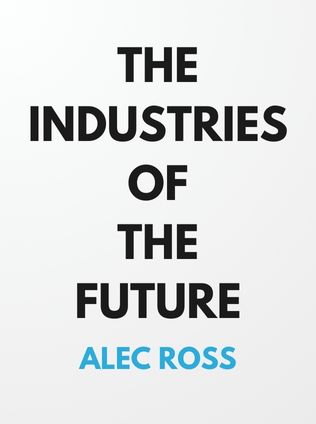
The Industries of the Future
By Alec Ross
Published 02/2016
About the Author
Alec Ross is one of America’s leading experts on innovation. He served for four years as Senior Advisor for Innovation to Secretary of State Hillary Clinton, a role that earned him a Distinguished Honor Award from the State Department. He is currently a Distinguished Visiting Fellow at Johns Hopkins University and serves as an advisor to investors, corporations, and government leaders. Ross’s extensive travels to 41 countries to explore technological advances make him uniquely qualified to forecast the future industries that will shape our world.
Main Idea
The Industries of the Future by Alec Ross explores the technological, economic, and sociological changes that will shape the next decade. The book identifies key fields such as robotics, cybersecurity, genomics, big data, and the digitalization of money and markets as the primary drivers of future progress. Ross provides insights into how these industries will evolve and offers guidance on how countries and individuals can thrive amidst these changes.
Table of Contents
- Here Come the Robots
- The Future of the Human Machine
- The Code-ification of Money, Markets, and Trust
- The Weaponization of Code
- Data: The Raw Material of the Information Age
- The Geography of Future Markets
Here Come the Robots
The Rise of Robotics
Japan, with its aging population, is at the forefront of developing robotic caregivers. Companies like Toyota and Honda are creating robots like Robina and ASIMO to assist the elderly, filling the gap left by a declining workforce. These robots are designed to perform tasks that require situational awareness, dexterity, and human judgment.
"The robots depicted in the movies and cartoons of the 1960s and 1970s will become the reality of the 2020s." - Alec Ross
Robotics is not limited to caregiving. Advanced robots are being integrated into various industries, including automotive and healthcare, to enhance efficiency and precision. This evolution raises questions about the future of employment and the need for social frameworks to support displaced workers.
- Robina: A nursing aide robot by Toyota.
- ASIMO: A humanoid robot by Honda, capable of interpreting human emotions and movements.
Robots and Jobs
The integration of robots into the workforce poses significant challenges and opportunities. According to a study by Oxford University professors, over half of U.S. jobs could be at risk of computerization in the next two decades. Jobs that involve situational awareness, spatial reasoning, and human judgment are being increasingly taken over by robots, affecting various sectors.
"Forty-seven percent of American jobs are at high risk for robot takeover, and another 19 percent face a medium level of risk." - Alec Ross
Countries that are investing in robotics for export, such as South Korea, Japan, and Germany, are better positioned to benefit from this technological shift. However, there is a need for social frameworks to support workers displaced by automation, ensuring they can transition to new industries or roles.
The Future of the Human Machine
Advancements in Life Sciences
The completion of the human genome project has paved the way for breakthroughs in genomics. Innovations such as liquid biopsies for early cancer detection and personalized medicine are transforming healthcare. Companies like Personal Genome Diagnostics (PGDx) are leading this revolution by providing detailed genomic analysis to guide cancer treatment.
Sign up for FREE and get access to 1,400+ books summaries.
You May Also Like
Rich Dad Poor Dad
What the Rich Teach Their Kids About Money - That the Poor and Middle Class Do Not!
By Robert T. KiyosakiFreakonomics
A Rogue Economist Explores the Hidden Side of Everything
By Steven D. Levitt and Stephen J. DubnerFactfulness
Ten Reasons We're Wrong About the World – and Why Things Are Better Than You Think
By Hans Rosling



















